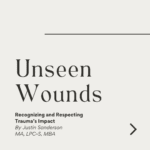If you are in recovery, you may know the benefit of having a sponsor to help you maintain your sobriety. A sponsor is an experienced member of a 12-step program like Alcoholics Anonymous (AA) or Narcotics Anonymous (NA) who guides a newer member through the 12 steps and principles of the program. Sponsors provide accountability, support, wisdom from their own journey, and an understanding ear whenever a struggling person needs someone to lean on. No one fully understands the struggles of addiction unless they have gone through it themselves.
A good sponsor is a gift beyond measure in early recovery. However, even with the best sponsor, there may come a time when it becomes clear that you need to find a new sponsor who aligns with your current needs.
Signs It May Be Time for a New Sponsor
An effective sponsorship is built on trust and confidence. If the relationship becomes unstable, it’s likely time to explore other options before you jeopardize your hard-earned sobriety. Here are some potential red flags to watch for that may indicate it is time to look for a new sponsor:
-
Personality Conflicts or Loss of Understanding
Although there may have been a solid connection between you and your sponsor in the beginning, it is not uncommon for personalities to clash over time. You may realize your communication styles don’t mesh well or your values differ too much. A loss of rapport and mutual understanding makes it very difficult to have a productive sponsorship.
-
Lack of Availability or Responsiveness
A good sponsor will be actively working on a recovery program. They should make themselves available when you need them, as long as it is within reason. If you cannot get in touch with your sponsor or they constantly reschedule your regular check-ins, they are not giving you the support you need. Their unavailability may be an issue in itself or simply reflect changing life circumstances.
-
Differing Perspectives on the Program
Because AA, NA, and other 12-step programs want to allow members to have different interpretations of 12-step principles, they don’t have rigid requirements for sponsors. If you find your sponsor has a drastically different view of the program compared to your own or that of your home group, that disconnect can hinder your progress. You want a sponsor who encourages you and shares your basic interpretation of the program’s principles.
-
Inappropriate Relationship Boundaries
It is vital for your sponsor to maintain appropriate boundaries and to prioritize your recovery. It is unacceptable if they overstep these boundaries, such as getting overly personal, making passes, or taking advantage of the relationship dynamic. A good sponsor keeps firm boundaries and sticks to them.
-
Pushing Their Own Beliefs
The role of a sponsor is to guide, not rule, you. If your sponsor seems more interested in promoting their own philosophies or beliefs rather than the principles of the 12-step program, it creates an unhealthy dynamic that can threaten your sobriety.
-
You’ve Outgrown the Relationship
It is natural for people to simply outgrow relationships that were perfect at one point but no longer support their growth. If you have needs that differ from when you started, or you’ve developed a capacity your sponsor hasn’t, it may be time for a change.
-
Relapse
Unfortunately, relapse can happen – even to your sponsor. If your sponsor relapses, they’ve lost the firm footing required to keep you on the recovery path. A relapse indicates it is time to seek a new sponsor who can provide a consistent example of successful sober living.
How to Make a Sponsor Change
If any of the above red flags arise, it doesn’t necessarily mean you have to leave your sponsor altogether. Before making any decisions regarding changing sponsors, engage in honest self-reflection. Ask yourself questions such as the following:
- Why do you feel the need for change?
- What unresolved issues do you have with your current sponsor?
- Do you feel stuck in your recovery journey?
Understanding your motivations and concerns will help guide your decision-making process.
Communicate Openly
Having an open and honest conversation with your sponsor about your concerns and unmet needs is essential. With good communication and willingness from both sides, you can restart your relationship. However, if problems persist or the relationship feels too damaged, it’s perfectly acceptable to make a change. This should be done by speaking with your sponsor directly, not going behind their back. Express your gratitude for their support thus far and explain your reasons for considering a change.
Seek Guidance
Consider reaching out to trusted individuals within your support network. This may include other recovery group members, a therapist, or a close friend or family member. Discuss your concerns and gather different perspectives. Their insights and experiences can provide valuable clarity and support during this transition.
Explore Your Alternatives
If you and your current sponsor agree that a change is necessary, explore potential alternatives together. Your sponsor may be able to recommend someone who is better suited to meet your evolving needs. Take the time to meet with potential new sponsors and assess whether their approach aligns with your recovery goals and values.
If you or a loved one are struggling with substance use or mental health disorders, help is available. At Stone River Recovery Center in San Antonio, Texas, we offer residential treatment and detox services as well as outpatient mental health services and substance use treatment. To learn more about how we can help, please contact us today.






